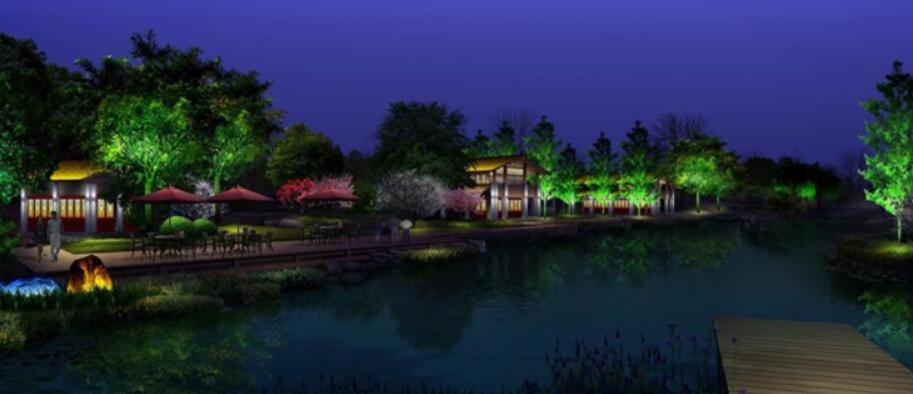One of the urgent challenges to be solved is the homogenization and singularity of various business formats in the night economy. In the future, how to better integrate local culture and create various experiential and quality oriented consumption such as culture, entertainment, and fitness may be one of the directions that various regions are striving for.

At night, white-collar workers in first tier cities can finally take a deep breath and invite their close friends or colleagues to a bar for a drink; In the southwestern hinterland of our country, Chongqing men and women who know how to enjoy life have long sat around hot pot and started playing. The boiling red oil and spicy taste buds seem to be a good antidote to stress... You have the Bund's Ten Mile Yangchang, I have a thousand year old ancient town; You are the ancient capital of the Six Dynasties with profound cultural heritage, but I am a water town in Jiangnan with beautiful scenery. In recent years, whether it is a first tier international metropolis, a second tier provincial capital city, or a third tier small city, they have all begun to focus on the cake of the night economy and strive to make progress.
The survey results of the Ministry of Commerce show that 60% of consumption in China occurs at night, and the "cake" of the night economy is truly enviable. However, whether one can enjoy this "cake" still requires the use of their brains and the display of their abilities in various regions. According to incomplete statistics, since 2004, more than ten provinces and cities in China have successively introduced local policy measures to promote nighttime economic development, including first tier cities such as Beijing, Shanghai, Guangzhou, and Shenzhen, as well as second tier cities such as Tianjin, Xi'an, Chongqing, Nanjing, and Jinan.
Night Economy, a New Battlefield of Urban Competition
In response to this phenomenon, Wu Liyun, Associate Professor of the Chinese Culture and Tourism Research Institute at Beijing Second Foreign Languages University, stated that although many cities have issued documents to promote nighttime economic development, it is evident that since 2017, the frequency of policies introduced in this field in various cities has significantly increased. Among them, Beijing and Shanghai both introduced policies in 2018 and 2019 to promote the development of local night economy for two consecutive years.
"This indicates that in recent years, various cities have attached greater importance to the night economy." Wu Liyun analyzed, "The report of the 19th National Congress of the Communist Party of China pointed out that China's economy has shifted from a stage of high-speed growth to a stage of high-quality development, and it is necessary to enhance the fundamental role of consumption in economic development. In recent years, there has been a clear trend that various policy documents of the country are aimed at promoting consumption, and developing the night economy is one of the key measures to promote consumption.", The General Office of the State Council has issued the Opinions on Further Stimulating the Potential of Cultural and Tourism Consumption and the Opinions on Accelerating the Development of Circulation and Promoting Commercial Consumption, both of which have repeatedly mentioned the issue of developing the night economy. This means that the development of the night economy has entered the vision of the central government.
Reject homogenization
However, developing the night economy cannot be smooth sailing; On the contrary, this poses multiple challenges to urban management, consumption upgrading, and industrial upgrading. Taking nighttime urban transportation services as an example, although many documents have mentioned measures such as increasing the number of nighttime buses and extending subway operation time, the current situation is not optimistic. According to the "Zhicheng Nightlife Index" released by the New First tier City Research Institute in March this year, only two cities in China have a nighttime bus coverage rate of over 50%, and the top ten cities are almost all southern cities. Among the 32 cities with subways, less than half of them are still operating after 22:00.
In addition, the homogenization and singularity of night economy formats in various regions are also one of the urgent problems that need to be solved. For example, the night economy format in many cities still only stays at night markets, with low average customer prices and a lack of distinctive features. In the future, how to better integrate local culture, create various experiential and quality oriented consumption such as culture, entertainment, and fitness, may be one of the directions that various regions are striving for.
Many cities have already taken action. From the "Night of Shangyuan in the Forbidden City" at the Forbidden City in Beijing and the "Wonderful Night of the National Museum every Saturday" at the National Museum, to the "Tang Dynasty Never Nightly City" in Xi'an, and then to the "Night Tour of Haihe" and "Night Appreciation of Jinqu" in Tianjin, more and more night experience projects with urban cultural brand characteristics have been launched, which have also received consumer attention. Despite facing many difficulties, the night economy, as a powerful growth pole to boost urban economic vitality, has enormous development potential. How to break through institutional barriers, build a mature and diverse consumer segmentation market to make consumers "willing to consume", and at the same time, improve the level of night city service management, create convenient transportation and a good public security environment, so that consumers "dare to consume", may be a question that all cities that hope to build night economy brands need to consider.
